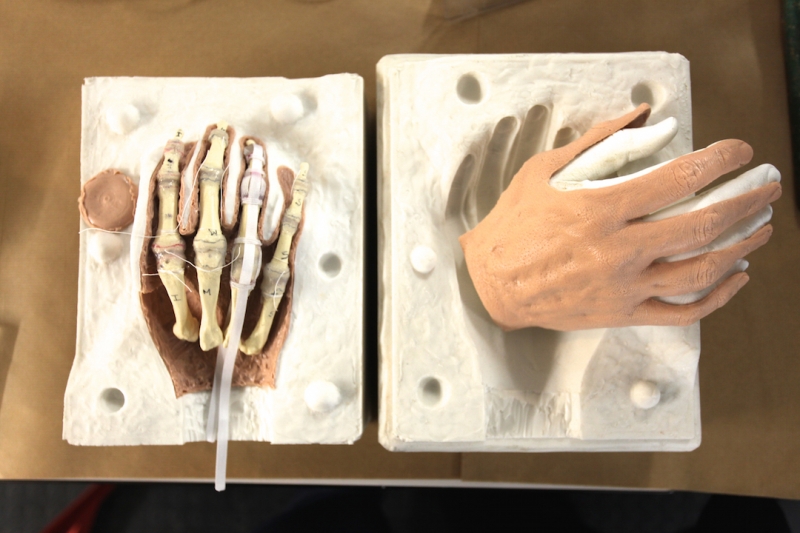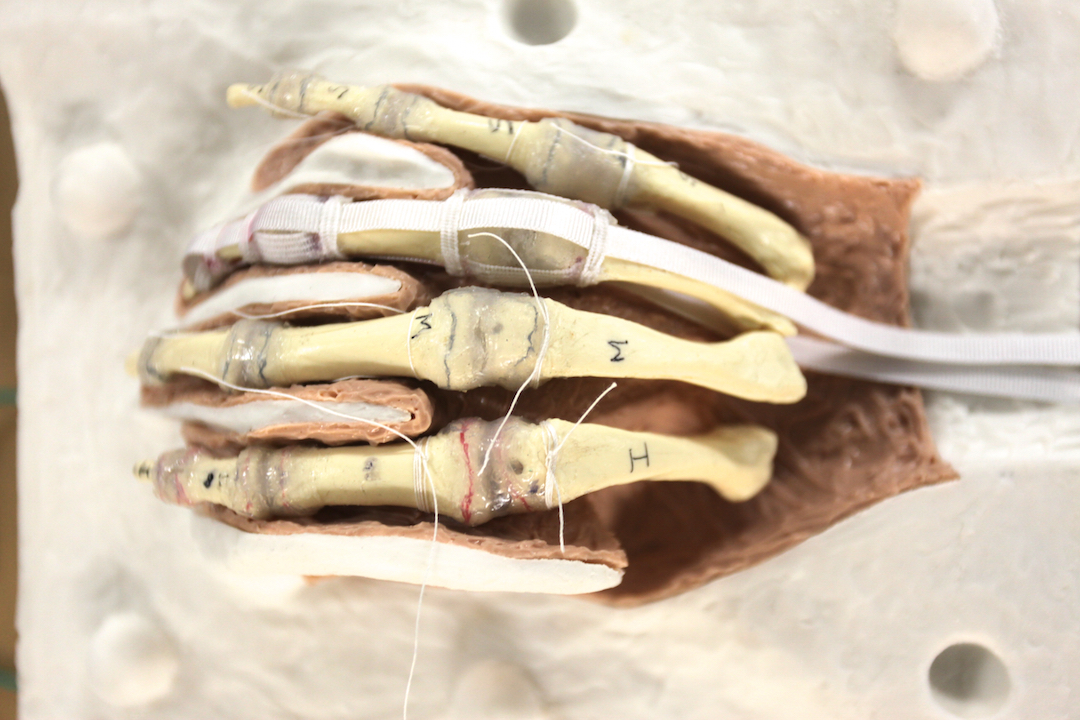Member profile: Dafne Morgado
11 September 2015

Dafne Morgado
Research associate, UCL Institute of Orthopaedics and Musculo-skeletal Science.
In the Makespace Dafne has been making force sensors and elongation/bending sensors, which attach to the replica human hands and finger joints she has been making as part of our Wearable Assistive Materials project. Real people’s hands can’t be used due to research ethics, and existing anatomy models do not simulate real movement or feel.
She is using silicone grease to mimic moving joints, attached to the sensors with silicone rubber, and covered by a realistic, softer silicone skin. She has learnt a huge amount about the material, adding chemicals to modify stiffness. She’s learnt some hard lessons about compatibility of different silicones. She has also learnt a lot about carefully selecting and buying materials, asking the right questions to avoid expensive mistakes.

Dafne feels she could not have done this project without the Institute of Making. Her manager is a surgeon with a different set of skills. There would be a far longer and more expensive period of trial and error, and her research budget would have had to cover specialist tools, and a place to keep them. The best thing about it is the open access nature, the fact that you can just drop in, and the tools and expertise are there, enabling you to progress.
“The expertise here has been vital. Real world research projects in my field rely on having the confidence to learn to make stuff yourself and continue to improve, knowing you can ask for advice or reassurance that you’re doing the right thing.”
New skills include perfecting the silicone in the vacuum degassing chamber before casting, and making the sensors she needs from scratch.
She has had lots of conversations about her work with other curious members, and has been encouraged by people who have used the 3D printer really nicely, seeing the possibilities for her own project. As a result she is less afraid to learn how to use it herself.